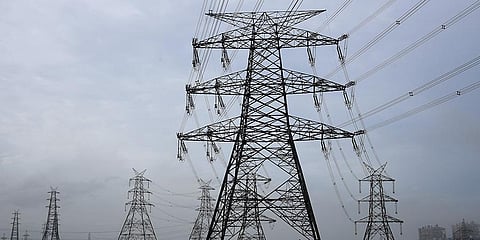

ISLAMABAD: The cash-strapped Pakistan government surrendered to another IMF demand when it imposed a surcharge of up to Rs 3.23 per unit on electricity consumers across the country with effect from July 1, according to a media report on Thursday.
The government's decision is aimed at generating Rs 335 billion more in revenue over the next fiscal year to finance the power sector's debt and liabilities.
The Dawn newspaper reported that consumers of Karachi-specific company K-Electric would be facing double jeopardy, as the government also gave the Karachi power utility the go-ahead to increase tariff by Rs 1.56 per unit in the current month and then another Rs 6.11 per unit in April and May, to ensure uniform electricity rates at par with other distribution companies in the country.
These decisions were taken on Wednesday at a meeting of the Cabinet's Economic Coordination Committee (ECC) presided by Finance Minister Ishaq Dar, which also approved a Rs 5 billion Ramadan relief package for Utility Stores, Rs 3,900 per 40 kg uniform minimum procurement price for wheat, and a waiver of storage charges on cargoes stuck at ports for letters of credit problems.
On top of this, a separate case would be presented to the Cabinet on Thursday to double the electricity rates for commercial consumers during the peak hours (after 8 pm) after the government efforts failed to create a consensus for market closures after sunset for energy conservation, a senior power division official said.
He said the Centre could not force provincial governments to close businesses through administrative measures but could use higher pricing as a policy tool to discourage consumption in peak hours or at least generate higher funds to meet this additional demand.
The ECC also approved the proposal (of the power division) regarding the enhancement of surcharge for the financial year 2024 to cover federal government obligations towards power producers, an official statement said.
"Further, these surcharges for FY24 will also be applied to K-Electric consumers to maintain a uniform tariff across the country," it said.
The government has already approved a Rs 3.39 per unit additional surcharge for the remaining four months (March to June) of the ongoing fiscal year and is currently passing through regulatory procedures for notification.
The International Monetary Fund (IMF) had demanded its continuation throughout the next fiscal year to pay off or service about Rs 800 billion debt parked in the Power Holding Private Limited.
The government had been resisting the IMF demand for continuing this additional surcharge but finally gave in to secure an economic bailout and avoid sovereign default.
Under the Rs 335 billion financing plan for a new surcharge in the 2023-24 fiscal year, there would be a 43-paisa additional cost per unit to protected consumers, using up to 200 units. This surcharge would increase to Rs 3.23 per unit for all other consumers throughout the next year.
Thus, the average national surcharge would work out at Rs 2.63 per unit.
The power division said the government was empowered under the Nepra law to "collect surcharges from the consumers for the fulfillment of any financial obligation of the federal government with respect to electric power services within the bracket of 10 per cent of the aggregate revenue requirement of all electricity suppliers".
This would be applicable across the country, including K-Electric. In addition, the ECC also approved a tariff increase of Rs 1.56 per unit for all KE consumers (except the protected category using fewer than 100 units) with a recovery period of three months (March to May 2023).
Besides, KE consumers would also be charged another average tariff increase of Rs 3.21 per unit for the recovery period of two months (April and May 2023).
The ECC considered a summary tabled by the Ministry of National Food Security and Research regarding the procurement price of wheat crop 2022-23 and approved a uniform rate of Rs 3,900 per 40 kg. Sindh has already announced the rate of Rs 4,000 and Punjab of Rs 3,900 per 40 kg.
The ECC approved a hybrid model of the Ramadan relief package (targeted and untargeted) consisting of 19 items for the Utility Stores Corporation at a budget of Rs 5 billion, the paper reported.
Cash-strapped Pakistan's economy is in dire straits. The foreign exchange reserves fell to a critically low level of USD 2.9 billion a few weeks ago.
The cash-strapped country eagerly waits for the USD 1.1 billion package from the International Monetary Fund (IMF). The Pakistani rupee sank sharply by Rs 18.74 against the dollar in the interbank market on Thursday.
Analysts attributed the record drop to the government's impasse with the International Monetary Fund.